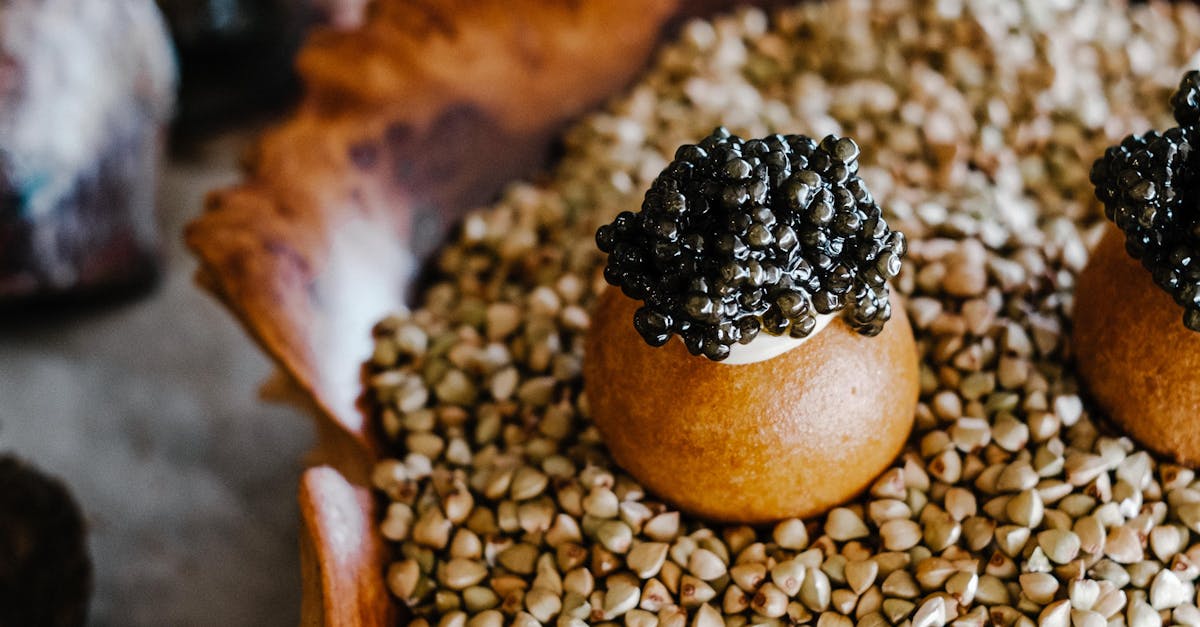October 26, 2024

Molecular gastronomy is changing the way we think about food. It's not just about taste anymore. It's about creating an experience that engages all the senses. Chefs are now using scientific techniques to transform familiar ingredients into something completely new and unexpected.
This innovative approach to cooking combines chemistry, physics, and culinary arts to create dishes that are as visually stunning as they are delicious. From foams and gels to spherification and liquid nitrogen, molecular gastronomy is pushing the boundaries of what's possible in the kitchen.
These techniques allow chefs to play with textures, temperatures, and presentations in ways that were previously impossible. The result is a dining experience that's both familiar and completely new at the same time.
As shown in the video above, the chemistry behind molecular gastronomy is fascinating. It's not just about making food look cool. It's about understanding the science of flavor and using that knowledge to create new taste experiences.
Molecular gastronomy isn't just a fad. It's a scientific discipline that's been developing for decades. The term was coined in 1988 by physicist Nicholas Kurti and chemist Hervé This. Since then, it's grown from a niche interest to a major influence in high-end restaurants around the world.
According to a study published in Chemical Reviews, molecular gastronomy is now recognized as an emerging scientific discipline. It's not just about creating fancy dishes. It's about understanding the fundamental principles of cooking and using that knowledge to innovate.
For restaurants, molecular gastronomy presents both opportunities and challenges. On one hand, it allows chefs to create unique, memorable experiences that can set their establishments apart. On the other hand, it requires specialized equipment and training, which can be costly.
This is where technology can help. For example, our 24/7 AI Phone Agent at loman.ai can handle reservations and inquiries, freeing up staff to focus on mastering these complex culinary techniques. It's just one way that technology is supporting innovation in the restaurant industry.
Molecular gastronomy isn't just changing menus. It's changing the entire restaurant experience. From the moment a customer calls to make a reservation to the final bite of a deconstructed dessert, every aspect of dining out is being reimagined.
While molecular gastronomy continues to evolve, it's also inspiring new culinary movements. Chefs are now exploring concepts like:
These emerging trends show that the impact of molecular gastronomy goes far beyond creating visually stunning dishes. It's changing the way we think about food, nutrition, and sustainability.
A recent review of culinary trends suggests that fusion cuisine, inspired by molecular gastronomy techniques, is gaining popularity. This blend of traditional flavors and innovative techniques is creating exciting new possibilities for chefs and diners alike.
As the video above demonstrates, the science of taste is complex. Molecular gastronomy is helping us understand and manipulate flavor in ways that were previously unimaginable.
As culinary techniques become more complex, technology is playing an increasingly important role in restaurant operations. From precision cooking equipment to advanced reservation systems, technology is helping restaurants deliver innovative experiences while maintaining efficiency.
At loman.ai, we're contributing to this technological revolution with our AI Phone Agent. By handling calls, taking orders, and managing reservations, our system allows restaurant staff to focus on what really matters: creating amazing food and memorable experiences for guests.
The fusion of culinary art, science, and technology is creating a new landscape for restaurants. Those who embrace these changes are finding new ways to delight customers and stand out in a competitive industry.
Molecular gastronomy has come a long way since its inception. What started as a scientific exploration of cooking principles has blossomed into a movement that's reshaping the culinary world. From high-end restaurants to home kitchens, these innovative techniques are changing the way we think about and experience food.
As we look to the future, it's clear that the principles of molecular gastronomy will continue to influence culinary trends. Whether it's through sustainable practices, personalized nutrition, or entirely new cooking techniques, the fusion of science and cooking is opening up exciting possibilities.
For restaurants looking to stay ahead of these trends, embracing technology is key. Tools like our AI Phone Agent at loman.ai can help streamline operations, allowing chefs and staff to focus on what they do best: creating amazing food and unforgettable dining experiences.
Molecular gastronomy is a scientific approach to cooking that explores the physical and chemical transformations of ingredients during cooking. It combines principles from chemistry, physics, and food science to create innovative dishes and cooking techniques.
When practiced by trained professionals, molecular gastronomy is safe. However, some techniques involve chemicals or equipment that require proper handling. Always follow safety guidelines and consult experts when trying advanced techniques.
Yes, there are many simple molecular gastronomy techniques you can try at home. Start with basic methods like creating fruit caviar or flavored foams. As you gain experience, you can explore more advanced techniques.
Technology is revolutionizing every aspect of the restaurant industry, from kitchen equipment to customer service. AI-powered tools like our phone agent at loman.ai are helping restaurants improve efficiency and focus on creating great dining experiences.

Enter your information in the form to receive a call from Loman and place an order like a customer would!